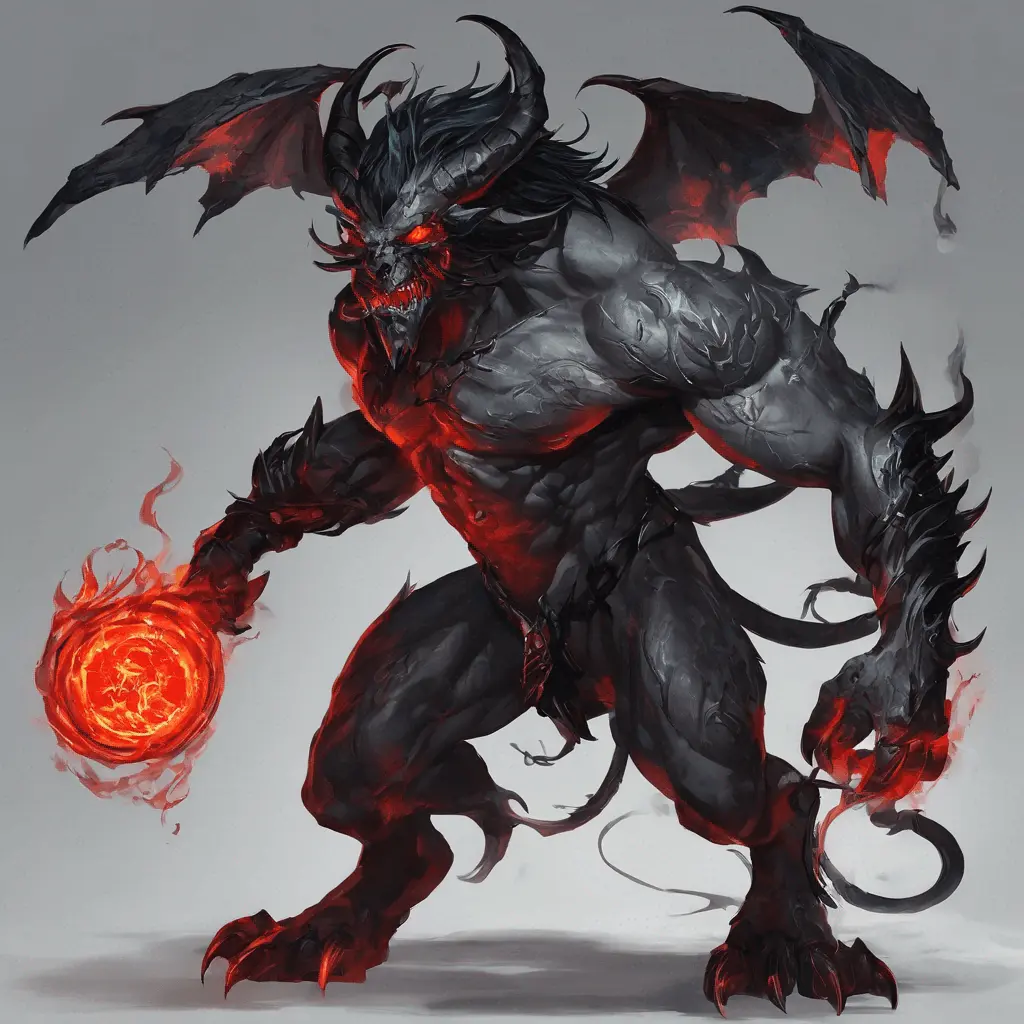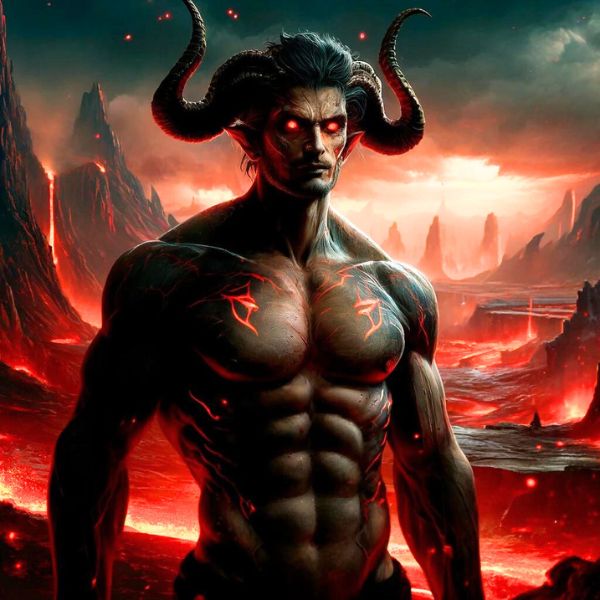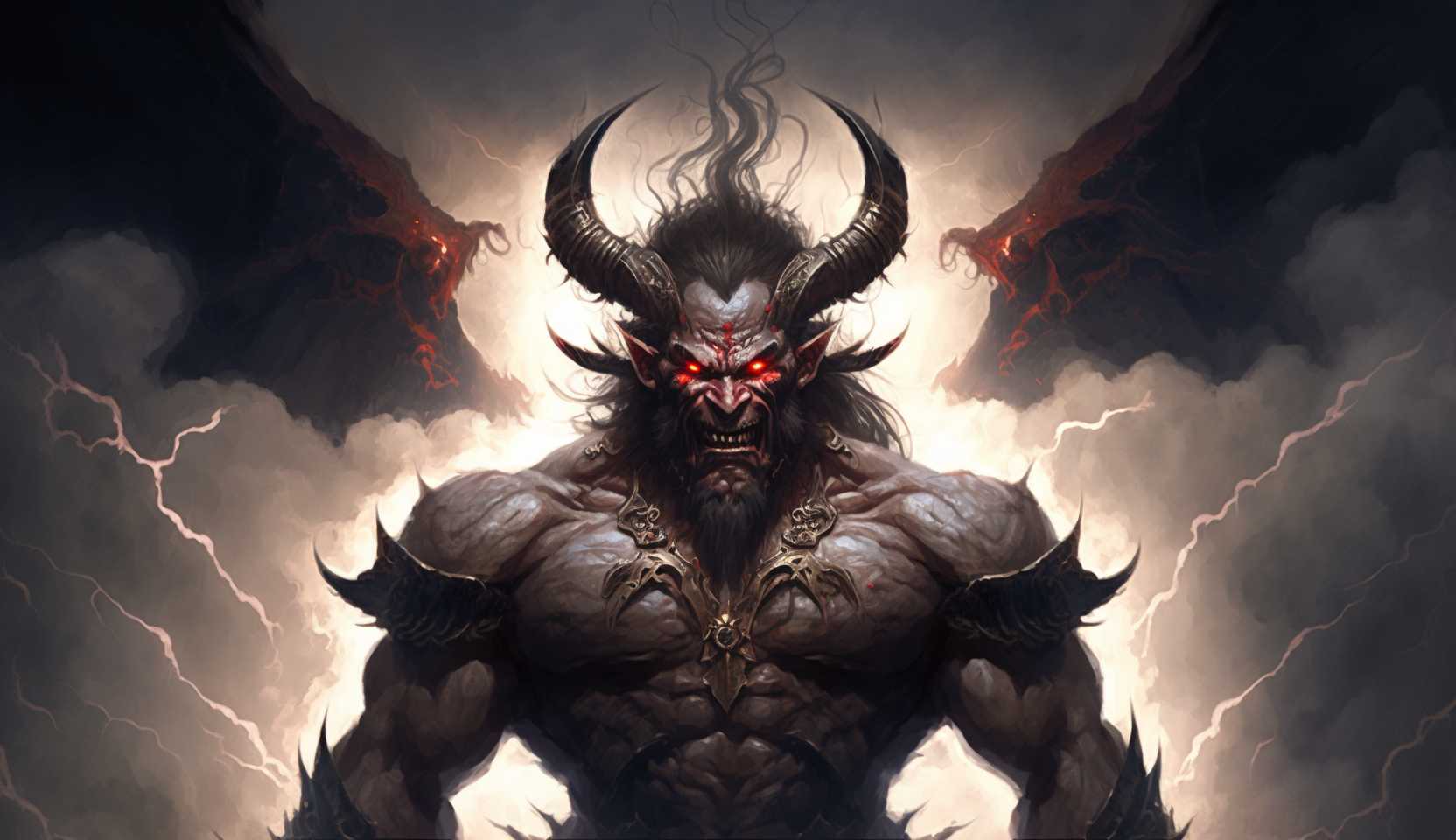Imagine this: You're diving deep into the mysterious realms of mythology, folklore, and occult studies, and suddenly you stumble upon the concept of male demon names. These names aren’t just random strings of letters; they carry weight, history, and a dark allure that’s hard to ignore. If you’ve ever wondered about the significance of male demon names or how they fit into various belief systems, you’re in the right place. This article is your ultimate guide to understanding everything about male demon names.
Male demon names have fascinated people for centuries, appearing in countless stories, religious texts, and even modern pop culture. From ancient civilizations to contemporary times, these names have played a significant role in shaping our understanding of the supernatural. Whether you're a mythology enthusiast, a gamer looking for inspiration, or just someone curious about the darker side of existence, this article will provide you with all the information you need.
So, buckle up and get ready to explore the fascinating world of male demon names. We’ll delve into their origins, meanings, and cultural significance, ensuring you leave with a deeper appreciation for these powerful entities. Let’s dive in!
Read also:Biggest Hand In Nba The Story Of Size Strength And Dominance
Table of Contents
- The Origin of Male Demon Names
- Common Male Demon Names You Should Know
- Cultural Impact of Male Demon Names
- Biblical References to Male Demons
- Male Demons in Mythology
- Modern Use of Male Demon Names
- Psychological Impact of Naming Demons
- Taboo Male Demon Names
- Famous Male Demons in Literature
- Conclusion: The Power of Male Demon Names
The Origin of Male Demon Names
Male demon names have roots that stretch back thousands of years, originating in various ancient cultures and belief systems. The word "demon" itself comes from the Greek term "daimon," which referred to spirits or divine powers. Over time, as religions and philosophies evolved, so did the perception of demons, and with it, their names.
In many cultures, male demon names were used to invoke fear, respect, or even reverence. They often carried meanings that reflected the characteristics attributed to the demons, such as power, cunning, or malevolence. For instance, names like "Lucifer" and "Beelzebub" have become synonymous with evil, but their origins tell a different story.
Some scholars argue that male demon names were created as a way to explain the unexplainable, giving form and identity to the forces of chaos and destruction. Others believe they served as warnings, cautioning people against certain behaviors or actions that could attract the attention of these malevolent entities.
Historical Context
Historically, male demon names were often associated with specific roles or functions. In Mesopotamian mythology, for example, demons like Pazuzu were believed to bring disease and misfortune, while in Hindu mythology, demons like Ravana were seen as powerful adversaries to the gods.
These names weren’t just random; they were carefully crafted to convey the essence of the demon. For instance, Pazuzu’s name is thought to mean "the one who seizes," reflecting his role as a bringer of illness. Similarly, Ravana’s name is believed to mean "one who makes the world roar," symbolizing his destructive power.
Common Male Demon Names You Should Know
When it comes to male demon names, there are a few that stand out due to their prevalence in various cultures and belief systems. Here’s a list of some of the most famous male demon names:
Read also:Tina Leung Age Discovering The Life And Journey Of A Remarkable Woman
- Lucifer: Often referred to as the "Morning Star," Lucifer is one of the most well-known male demons in Christian mythology.
- Beelzebub: Known as the "Lord of the Flies," Beelzebub is another prominent figure in Christian demonology.
- Baphomet: This name is often associated with occult practices and is believed to represent a goat-headed deity.
- Pazuzu: A demon from Mesopotamian mythology, Pazuzu is known for causing disease and misfortune.
- Mephistopheles: A character from German folklore, Mephistopheles is a demon who makes deals with humans.
These names have found their way into literature, films, and even music, cementing their place in popular culture.
Why These Names Matter
The significance of these male demon names lies in their ability to evoke strong emotions and reactions. Whether it’s fear, curiosity, or fascination, these names have a way of capturing our imagination and drawing us into the world of the supernatural.
Moreover, understanding these names can provide insight into the cultural and historical contexts from which they emerged. They offer a glimpse into the beliefs and values of ancient societies and how those beliefs have evolved over time.
Cultural Impact of Male Demon Names
Male demon names have had a profound impact on various cultures throughout history. From influencing religious practices to shaping artistic expressions, these names have left an indelible mark on human society.
In many cultures, male demon names were used in rituals and ceremonies to ward off evil or to gain favor with the spirits. For example, in some African traditions, invoking the name of a male demon was believed to protect against misfortune. Similarly, in medieval Europe, exorcists would use the names of demons to cast them out of possessed individuals.
Today, male demon names continue to influence popular culture. They appear in films, video games, and literature, often serving as a source of inspiration for writers and creators. Shows like "Supernatural" and movies like "The Exorcist" have brought these names to a wider audience, introducing them to new generations.
Modern Interpretations
Modern interpretations of male demon names often focus on their symbolic meanings rather than their literal ones. For instance, the name "Lucifer" is no longer just associated with the devil but is also seen as a symbol of rebellion and enlightenment.
This shift in perception highlights the evolving nature of cultural symbols and how they adapt to changing societal norms and values. It also underscores the importance of context in understanding the true meaning behind these names.
Biblical References to Male Demons
The Bible contains numerous references to male demons, each with its own unique characteristics and significance. These references have shaped Christian demonology and continue to influence religious beliefs today.
One of the most famous male demons mentioned in the Bible is Lucifer, who is described as a fallen angel who rebelled against God. Another well-known figure is Beelzebub, who is referred to as the prince of demons. Both of these names have become synonymous with evil and are often used as symbols of temptation and sin.
Other male demons mentioned in the Bible include Azazel, who is associated with the scapegoat ritual, and Abaddon, who is described as the angel of the bottomless pit. These names, along with others, form the foundation of Christian demonology and have been the subject of much study and debate over the centuries.
Interpretations and Misinterpretations
Interpreting biblical references to male demons can be challenging due to the varying translations and interpretations of the texts. What one person sees as a literal account, another may view as a metaphorical representation.
Regardless of interpretation, these references have had a lasting impact on religious practices and beliefs. They have also inspired countless works of art and literature, further cementing their place in human culture.
Male Demons in Mythology
Mythology is rich with stories of male demons, each with its own unique characteristics and significance. From Greek mythology to Norse legends, these demons have played a crucial role in shaping the beliefs and values of ancient societies.
In Greek mythology, for example, Typhon was a monstrous creature who challenged the gods. In Norse mythology, Loki was a trickster god who often caused chaos and destruction. Both of these figures can be seen as male demons, embodying the forces of chaos and disorder.
These stories serve as cautionary tales, warning against the dangers of hubris and the consequences of straying from the path of righteousness. They also highlight the importance of balance and harmony in maintaining the natural order of things.
Lessons from Mythology
One of the key lessons that can be learned from mythology is the importance of understanding the forces that shape our world. By studying the stories of male demons, we can gain insight into the human condition and the struggles we face in our daily lives.
Moreover, these stories remind us of the power of language and the significance of naming. Just as male demon names carry weight and meaning, so too do the words we use in our everyday lives. They have the power to shape our perceptions and influence our actions.
Modern Use of Male Demon Names
In modern times, male demon names have found new life in various forms of media. From video games to literature, these names continue to captivate audiences and inspire creators.
One of the most popular uses of male demon names is in video games, where they often serve as the names of powerful enemies or bosses. Games like "Devil May Cry" and "Dark Souls" feature demons with names that evoke fear and respect, drawing players into the world of the supernatural.
Similarly, male demon names appear in literature, where they are used to create rich and complex characters. Authors like John Milton and William Blake have used these names to explore themes of good and evil, temptation and redemption.
Impact on Pop Culture
The impact of male demon names on pop culture cannot be overstated. They have become a staple of modern storytelling, providing a rich source of inspiration for writers, filmmakers, and game developers.
As we continue to explore the darker side of existence, male demon names will undoubtedly remain a powerful tool for creators looking to captivate and inspire their audiences. They remind us of the power of language and the importance of understanding the forces that shape our world.
Psychological Impact of Naming Demons
Naming demons has a profound psychological impact on both individuals and societies. It gives form and identity to the forces of chaos and destruction, allowing us to confront and understand them.
Research has shown that naming something can reduce its power over us. By giving a demon a name, we take away some of its mystery and fear, making it easier to deal with. This is why exorcists and other practitioners often use the names of demons in their rituals, as a way to gain control over them.
Moreover, naming demons can serve as a form of empowerment, giving individuals the tools they need to face their fears and overcome their challenges. It’s a reminder that even the darkest forces can be confronted and conquered with the right mindset and approach.
Therapeutic Uses
Some therapists have begun using the concept of naming demons in their practice, encouraging clients to identify and confront their fears and anxieties. By giving these negative emotions a name, clients can begin to understand and manage them more effectively.
This approach highlights the therapeutic potential of naming demons and underscores the importance of language in shaping our perceptions and experiences. It’s a powerful reminder of the impact that words can have on our lives.
Taboo Male Demon Names
Some male demon names are considered taboo due to their association with extreme evil or forbidden knowledge. These names are often avoided in polite conversation and are seen as dangerous or disrespectful.
One example of a taboo male demon name is "Asmodeus," who is often associated with lust and perversion. Another is "Moloch," who is linked to child sacrifice and is considered one of the most malevolent demons in mythology.
While these names may be taboo, they continue to fascinate and intrigue those who study the darker aspects of human culture. They serve as a reminder of the power of language and the importance of respecting cultural norms and values.
Why They’re Taboo
The taboo nature of these names stems from their association with extreme forms of evil and destruction. They represent forces that are beyond human control and understanding, making them both fascinating and terrifying.
However, it’s important to remember that what is considered taboo can vary depending on cultural and historical context. What may be taboo in one society may be perfectly acceptable in another, highlighting the complexity and diversity of human culture.
Famous Male Demons in Literature
Literature is filled with examples of famous male demons, each with its own unique story and


